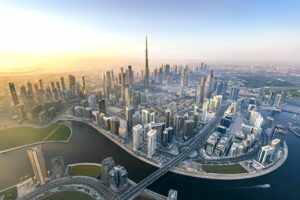Dubai Announces Increases in Salik, Parking Fees, and Other Licenses: What It Means for Investors and Residents
As of December 2024, Dubai has announced updates to its fee structures, including increases in Salik charges, parking fees, and specific licenses. These changes, announced by Dubai Economy on December 28, 2024, aim to address ongoing traffic concerns and enhance city infrastructure. Here’s a breakdown of what this means and how it might impact you.
Salik Fee Increase: What Does It Mean for Investors and Residents?
If you’ve ever driven in Dubai, you’re familiar with Salik—the toll system on key roads like Sheikh Zayed Road. The government has announced an increase in Salik charges, with each toll gate crossing rising from AED 4 to AED 5, effective March 1, 2025.
- For Residents: If you drive regularly, this increase could add up quickly, especially for those who frequently use major highways like Sheikh Zayed Road or Al Khail Road. To cut down on costs, it might be worth considering alternative routes or switching to public transport, such as Dubai’s metro and bus systems, which remain cost-effective and convenient options.
- For Investors: For real estate investors, the higher Salik fees could influence tenant demand in specific areas. Properties located near toll gates may face slightly reduced interest as prospective tenants look to avoid frequent tolls. This is a trend worth monitoring when choosing your next investment location.
Parking Fee Increases: What You Need to Know
In addition to Salik, Dubai Economy announced on December 28, 2024, that parking fees across the city will increase. Standard parking fees will rise from AED 4 to AED 6 per hour in key zones starting March 2025.
Tips to Save on Parking Costs:
- Public Transport is Your Friend: The Dubai Metro is one of the best in the world. It’s convenient, fast, and affordable. If you’re heading to busy areas, consider leaving your car at a metro station and taking the train.
- Carpooling: Share rides with friends or coworkers to split the cost of parking and fuel.
- Park a Little Further Away: Opt for parking slightly away from high-demand areas. It saves money and gives you a bit of exercise.
- Mobile Parking Apps: Use Dubai’s parking apps to pay conveniently and explore discounts for extended parking. Payments via WhatsApp or SMS are also available.
- For Investors: If your properties are located in areas with limited parking, this increase could become a pain point for tenants. Investing in additional parking spaces or ensuring easy access to public transport can make your properties more appealing.
Another significant update is the reintroduction of VAT on alcohol. While the exact implementation date and percentage are yet to be officially confirmed, this move could affect both residents and businesses.
- For Residents: Alcohol in Dubai is already priced higher than in many other regions. If VAT is reintroduced, prices may increase further, potentially leading to more cautious spending habits among consumers.
- For Investors: For hospitality and F&B investors, this VAT change could impact revenue. Bars, restaurants, and hotels reliant on alcohol sales may need to reassess pricing and promotional strategies. In terms of real estate, properties in nightlife districts might see shifts in demand as spending habits evolve.
However, the impact on residential real estate might be more subtle. If nightlife habits shift, properties near popular nightlife districts could see some changes in demand. Still, Dubai’s tourism-driven economy and vibrant social scene will likely remain strong.
These updates to Salik, parking fees, and VAT on alcohol are all part of Dubai’s bid to be the best city in the world. As a resident, taking advantage of public transport and adjusting your driving habits can help minimize the impact of these changes. For investors, staying on top of how these updates affect demand in different areas will be key to making smart investment decisions.
At Chestertons, we always monitor the latest developments in Dubai’s real estate market. These changes are just another factor to consider when planning your next move—whether you’re a resident, investor, or both.
By Saarah Rasheed
- Read time
- 3 minutes
Related Blogs
-

Chestertons Dubai Real Estate Market Report – Q1 2025
17th Apr, 2025
-

Insider Tips for Successfully Managing Short-Term Rentals: Maximize Bookings & Profits
11th Apr, 2025
-

Discover Dubai Hills Estate in 2025 – A Peaceful and Modern Place to Call Home
8th Apr, 2025
-

How to Turn Your Property Into a Profitable Holiday Rental
8th Apr, 2025
-

Maximizing ROI: Best Practices for Property Management in KSA
7th Apr, 2025

